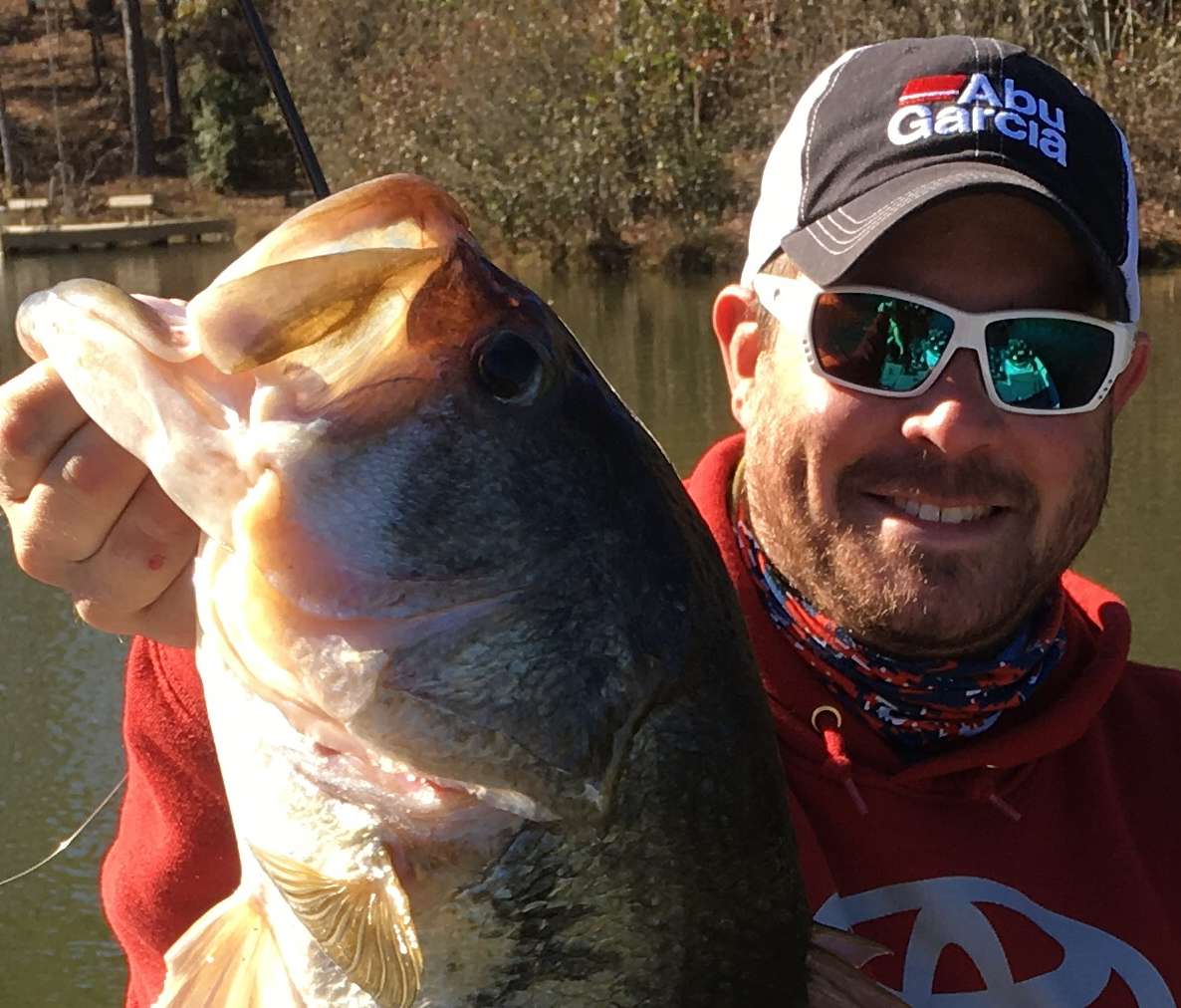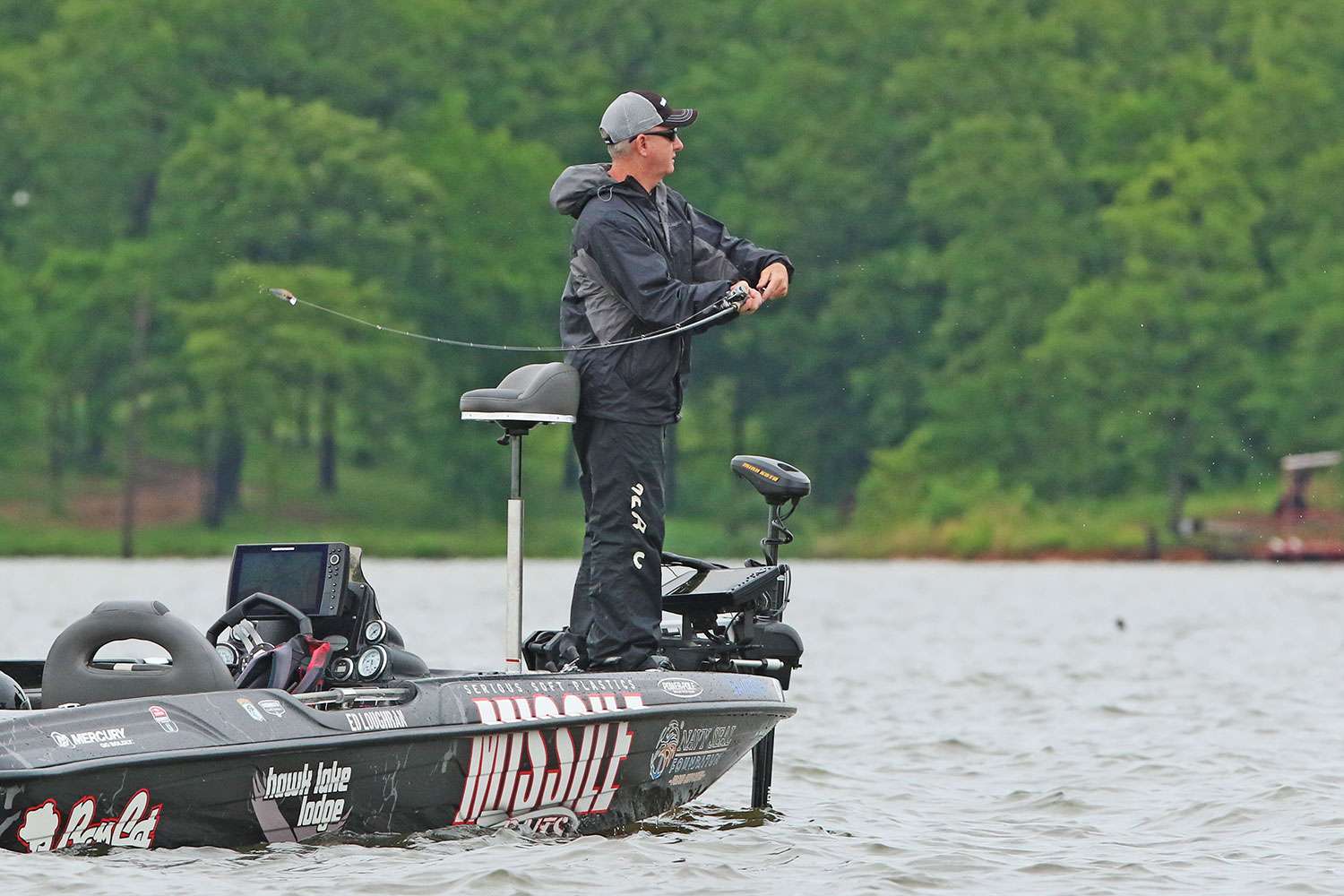
“Balls roll funny for everybody, kiddo.” Fast Eddie Felson, “The Color of Money”
You may or may not know this about Elite Series rookie Ed Loughran, but he’s a trial lawyer in his “spare time.” He raced out of court last week to make practice on Lake Fork.
He knows, however, bass fishing — just like pool — has its ups and downs, but if you’re serious about it you can’t give up. Ever.
Of course, there’s more to it than that. That advice from the 1986 drama holds true for about anything in life worth pursuing — especially competing on the top trail in professional bass fishing.
Loughran works in civil litigation around collections with banks, dentists, tenants, etc. A career he didn’t originally intend on pursuing, but life presented people and opportunity, and he took advantage. After an early run at becoming a pro angler, he felt it would be prudent to be financially stable first.
And that’s what he did. Now he pays the bills with that career, which allows him to fish with a lower level of stress than perhaps the guy who depends on winnings tournament to tournament.
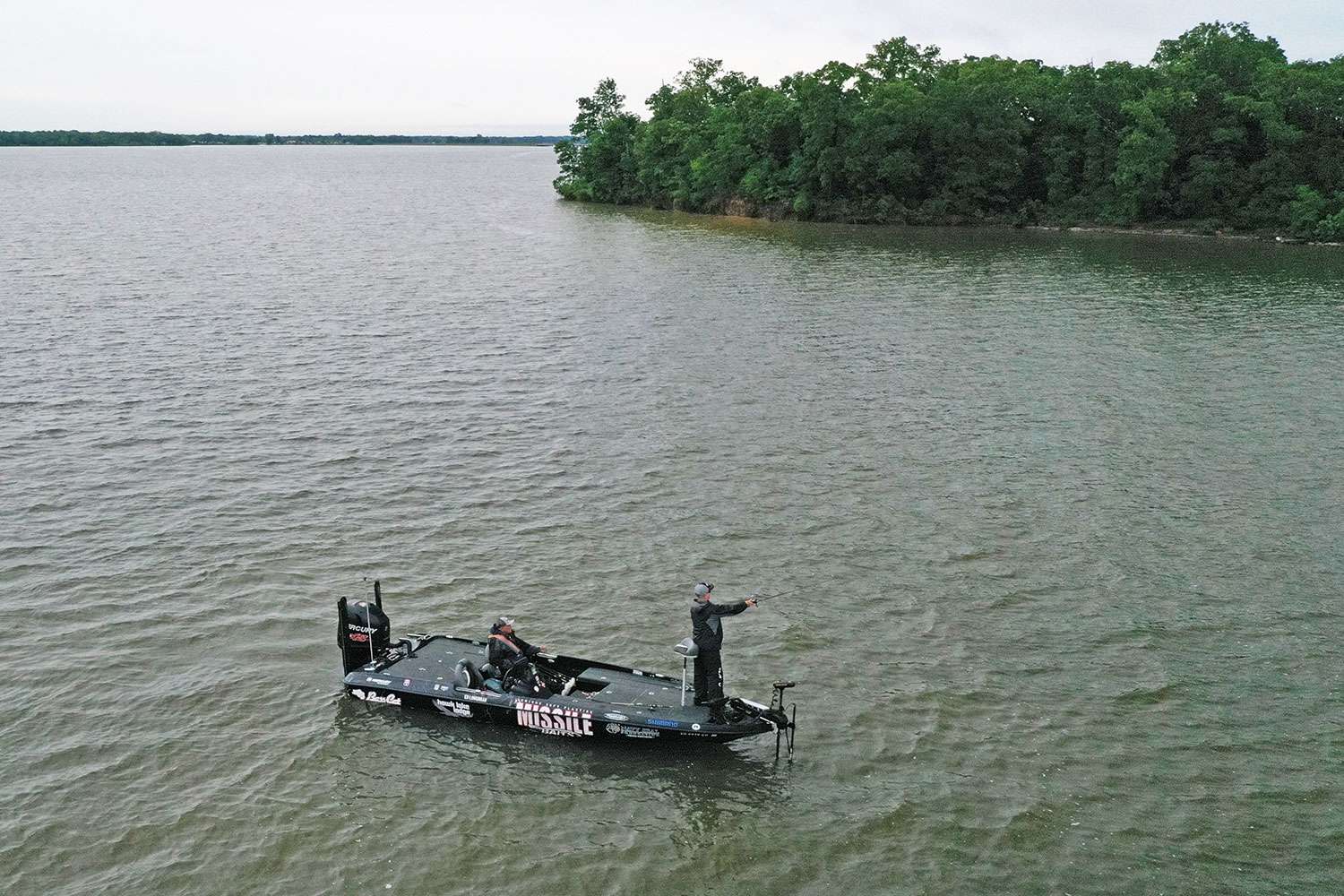
Being a professional angler that compliments a regular profession puts him apart of an elite brotherhood made up of dudes who joined the Elite Series with an established career. Other names include Gary Clouse, Harvey Horne, Kelley Jaye and Dale Hightower.
“I’ve always loved bass fishing, and at an early age I worked at a local tackle shop where I was paid in baits, rods and reels,” he said. “Those early experiences really helped fuel my fire, and when I was old enough I started fishing every tournament I could. But it also taught me that bass fishing sometimes isn’t fair. Maybe it’s that mystery that makes the sport so attractive.”
Loughran also said he met a lot of great people through that early job.
The connection Loughran has to fellow Elite pro John Crews is an interesting one; both men shared the same mentor in Rick Hawkins. The man invested in both anglers at a young age and they grew into top-shelf competitive bass anglers.
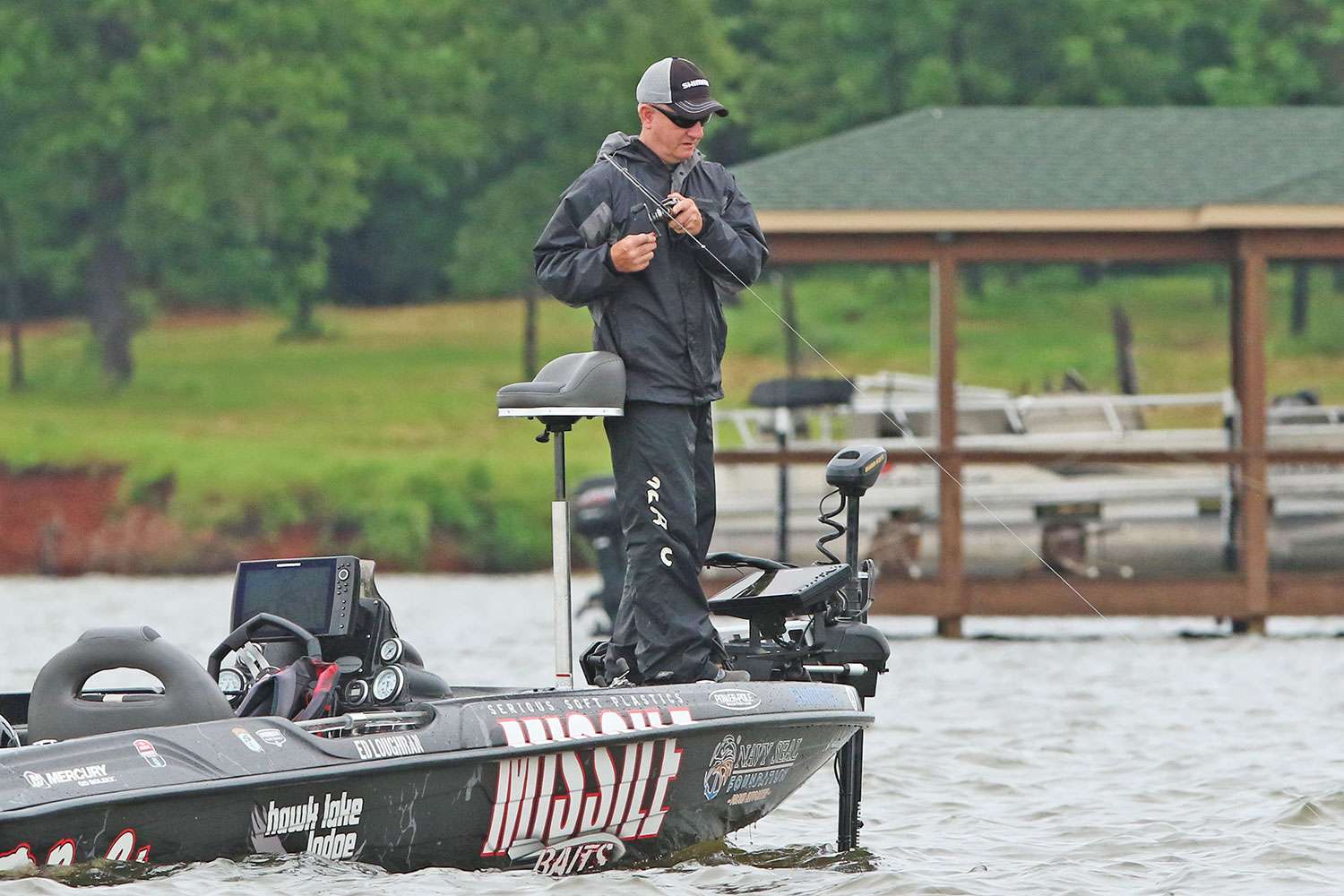
“I met John (Crews) and we instantly had a connection, and we’ve been fast friends ever since,” he said. “I gave the pro tournament thing a try, but got out in the late 90s to establish a career so I could get myself financially stable before taking a second shot at the tour.”
He said that with a lot of today’s younger anglers coming into the sport out of college, many of them are more than prepared to catch bass, but very few are financially prepared to maintain the balance between money and fishing.
“For me, building a career first was crucial to fishing smarter. I don’t fish with the stress of needing to cash a check at each event, and I feel like I’m more effective that way,” he said. “My work arrangement is very flexible, and my bosses are outdoors people, which makes it nice when I have to leave for a tournament. They get it.
“My situation is ideal. I realize that not everybody is going to be in the same scenario that I am, but taking a good, realistic look at the sport of bass fishing, and pursuing it wisely is the best approach. But fish as often as you possibly can. And fish waters you’re unfamiliar with. ”
Growing up in Bethesda, Maryland, and cutting his bass-fishing teeth across much of Virginia, Laughran is a well-rounded angler.
“Virginia offers just about every style of fishery an anglers needs to master in order to compete at this level,” he said. “I guided for many years on the side on the Potomac River, Chesapeake Bay and other nearby similar fisheries along the Mid Atlantic. That time of my life really helped prepared me for where the Elite Series visits.
“But as my first season on the Elite Series will show, I’m not performing as well as I should.”
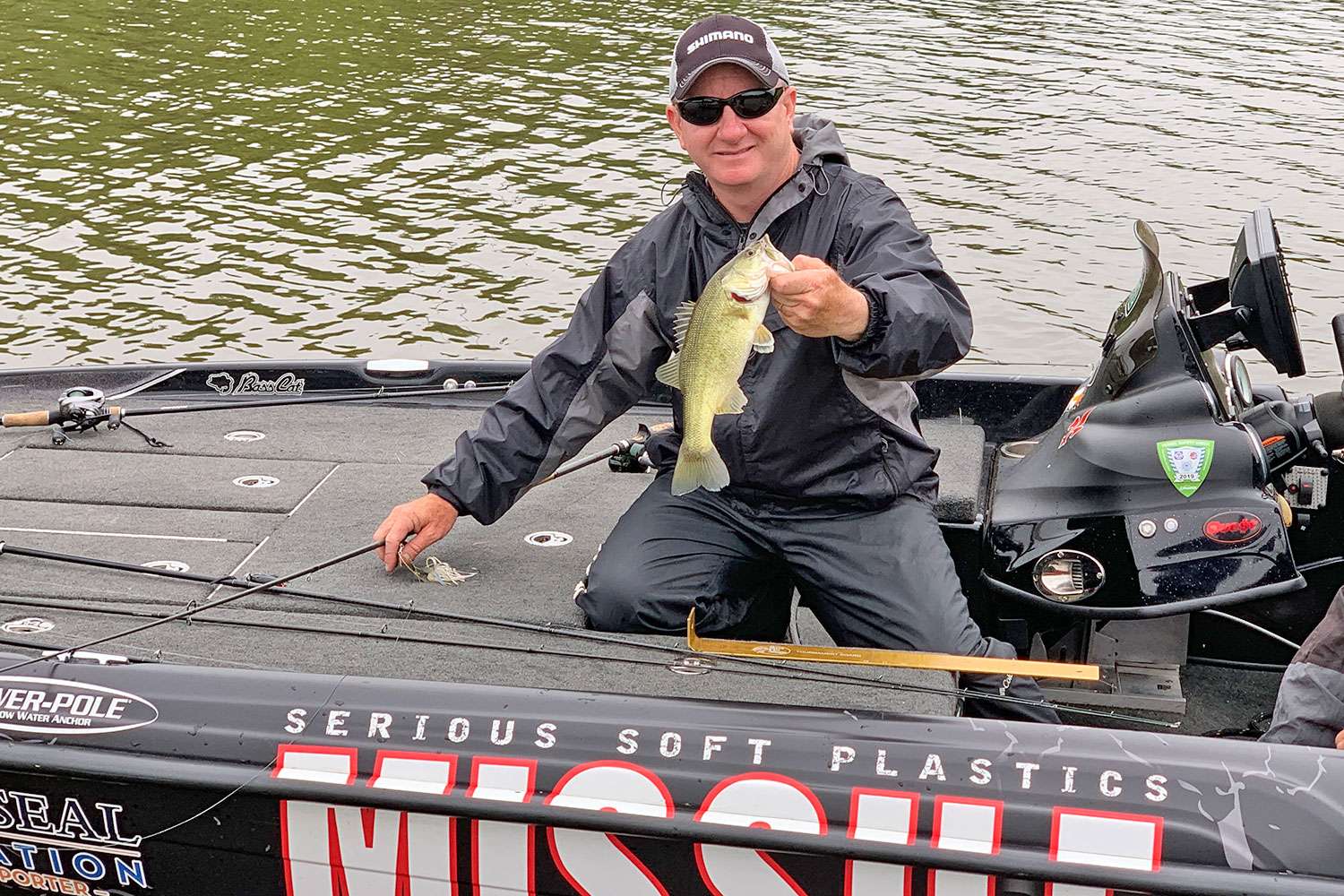
Loughran is extra hard himself, while he’s currently out of Classic contention, he’s not that far out at all, considering it’s only half way through the season. One good tournament and he’s back in the mix.
“I expect myself to be consistently in the Top 30, I know I’m capable of that,” he said. “Many of the fisheries we’re visiting this year I’ve never seen before, which is a mild handicap because I’m learning as I go. But, with my experience on tidal fisheries, I’m good at making quick decisions on the fly. I’m confident I can finish the year strong, but don’t underestimate this field of anglers — none of them will give it to you. You’ll have to work for sure.”
This week at Fork, he’s doing his best to survive and move onto the next.
“This lake is full of big fish, but it’s notorious for being very stingy,” he said. “Its one of those anomalies that receives an enormous amount of pressure, yet continues to kick out big fish. At this point, I’ve not established a pattern I can rely upon to get me into Sunday’s cut, let alone the final day. But on this lake, it could happen at any moment, and that keeps me casting.”
He is a realist, and he’s not the type to let the pressure get to him.
“This is fun for me, I love the sport, I’m very competitive and competing at this level is very satisfying to me, even if I don’t have a great tournament. You can’t win ‘em all — somebody will win every one, and that means someone will lose, if I can stay consistently in the middle somewhere, then I feel like I’ll have been successful.
“My goal is to catch a decent limit each day — aiming for individual and personal victories with each cast. We’ll see how this week plays out.”
Since he’s not required to win money at each event to stay afloat, Loughran can be more generous with his money. He donates 25 percent of his winnings to the Navy SEAL Foundation, which supports SEALs, their families and to support the infrastructure within the Naval Special Warfare community.
“It’s something I care a lot about, and I feel like I’m giving back to people who provide the freedom that allows me to get a good education, pursue a career and be a professional angler,” he said. “I don’t want that to sound cliché, but I’m very happy to do that.”
Loughran chose to take a different route to the Elite Series than many of the young anglers coming out of the college ranks. But, he appreciates the opportunities the young anglers have.
“It’s a fantastic opportunity for today’s youth to get early experience in the tournament world,” he said. “But I connect best with the journeyman angler, the grinder who always has other irons in the fire — the Joe Thomas type. We all have unique stories and I’m very grateful for the opportunities I’ve been given to pursue this dream. Most of the dreams young anglers have to fish at this level end in heartbreak, very few get this chance, and I’m going to make the most of it.
“Fast Eddie was right: The fish don’t bite the same for everybody.”

